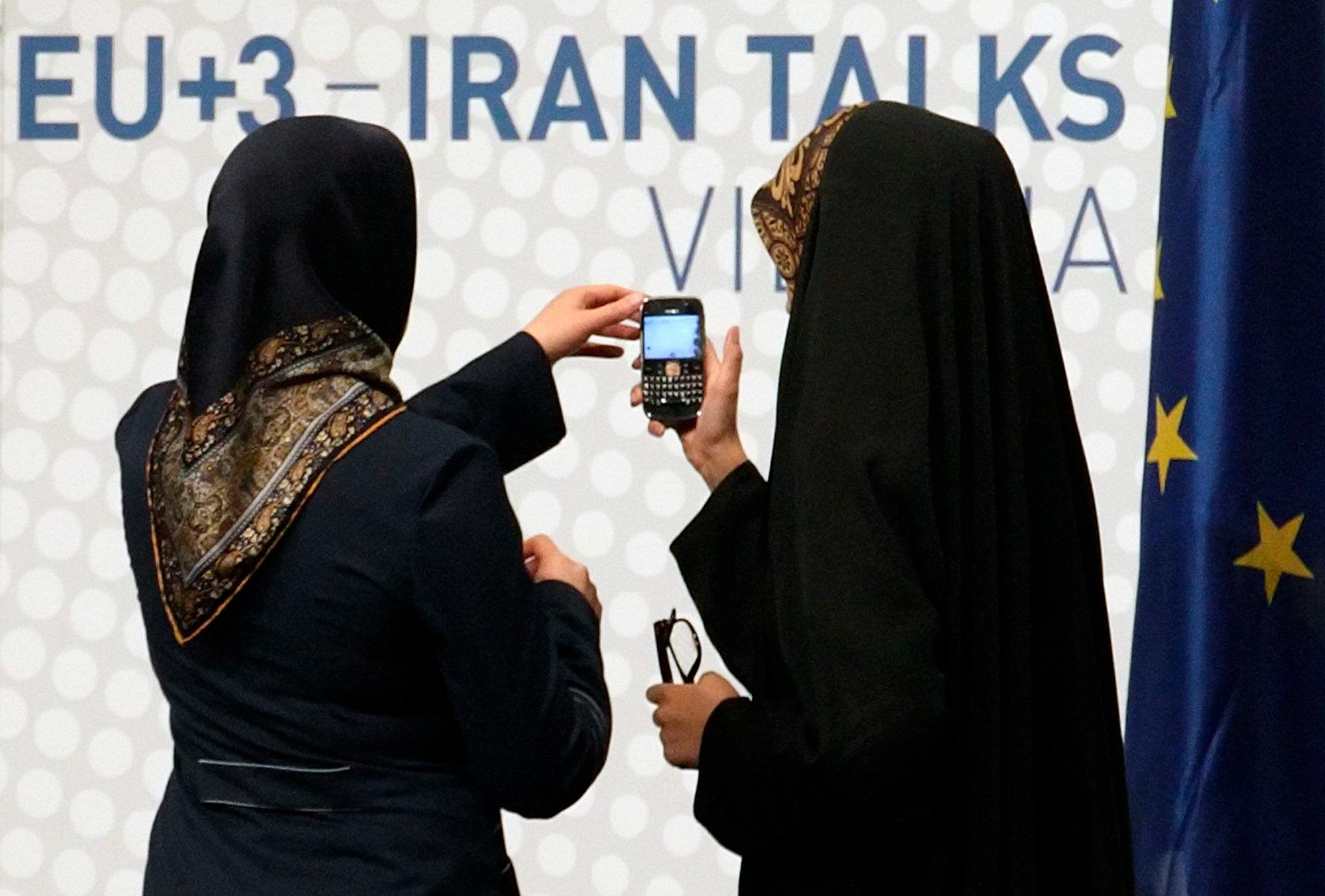Iranian journalists taking selfies with a smartphone
Hossein Derakhshan didn't expect to find himself in an Iranian prison, but that's where he spent from late 2008 to November 2014. He was sentenced to 20 years for political writing, as well as traveling to Israel, a 'hostile state' under Iranian law. Six years later, he's reemerged into a very different world.
Before his arrest, Derakhshan was a powerhouse in Iranian blogging. He's credited with popularizing blogging, and jokingly referred to as "the blogfather" of Iran.
While elements of his writing went against the government line, Derakhshan's work didn't always fit a typical profile that would attract the government's attention. He advocated in favor of Iran's nuclear weapons program, and wrote "…at its worst, [Iran] is way better than anything that the United States or anyone else can bring to Iran."
Yet some of his other work was more controversial.
Last November the supreme leader of Iran, Ali Khamenei, pardoned and released Derakhshan. Six years in prison is a long time, and Tehran itself was greatly changed. The city had undergone a real estate boom, with hi-rise luxury apartments taking the place of older low rise buildings while SUVs and expensive cars flooded the streets.
Yet by far the biggest changes had been technological. Derakhshan entered prison a year after the first iPhone launched, when smartphones were a luxury item and Blackberry outsold the iPhone.
"The biggest change was the emergence and the unbelievable, incredible popularity of smartphones." Derakhshan said " This was very new to me."
Seemingly overnight the smartphone revolution brought a digital cultural revolution. Practical tools, such as Google Maps, were widely available, and social networks moved from a portion of internet activity, to the dominant activity. "Everything is going through Facebook. It's become the biggest gateway for news and information for many, many people."
Derakhshan describes the death of the hyperlink as the death of the open web. In some countries Facebook is already moving to become an internet service provider.
For a blogger, the death of the web, in favor of social networks and apps, comes hard. He says censorship has increased, but so have the number of people online. Apps now offer Iranians many more ways to communicate, and discuss ideas.
"When you see the breath of discussions and the diversity of the opinions that are expressed on these social networks, even from within Iran, you would be surprised." he says. "It's not perfect, it's not ideally open, but it's still happening."
Our coverage reaches millions each week, but only a small fraction of listeners contribute to sustain our program. We still need 224 more people to donate $100 or $10/monthly to unlock our $67,000 match. Will you help us get there today?
